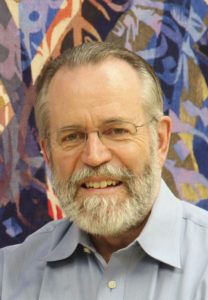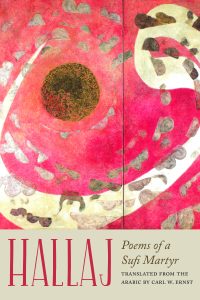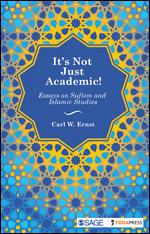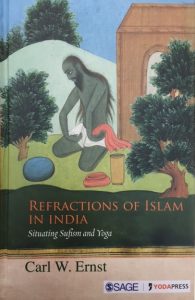Home

|
Carl W. Ernst is an academic specialist in Islamic studies, with a focus on West and South Asia. He has received research fellowships from the Fulbright program, the National Endowment for the Humanities, and the John Simon Guggenheim Foundation, and he has been elected a Fellow of the American Academy of Arts and Sciences. His research, based on the study of Arabic, Persian, and Urdu, has been mainly devoted to the study of three areas: general and critical issues of Islamic studies, premodern and contemporary Sufism, and Indo-Muslim culture.
New books coming out in 2023:
His last book, which won the inaugural Global Humanities Translation Prize from the Buffet Institute, is a translation from the Arabic, Hallaj: Poems of a Sufi Martyr (Northwestern University Press, 2018). His scholarly work is summarized by two collections of essays: It’s Not Just Academic: Essays on Sufism and Islam (2017), and Refractions of Islam in India: Situating Sufism and Yoga (2016). Scholarly responses to his work are collected in Words of Experience; Translating Islam with Carl W. Ernst, edited by Ilyse R. Morgenstein Fuerst and Brannon M. Wheeler (Equinox, 2021). His previous publications, which have received several international awards, include an edited volume on Islamophobia in America (Palgrave-Macmillan, 2013); How to Read the Qur’an: A New Guide, with Select Translations (UNC Press, 2011); Rethinking Islamic Studies: From Orientalism to Cosmopolitanism (co-edited with Richard Martin, 2010); Following Muhammad: Rethinking Islam in the Contemporary World (2003); Sufi Martyrs of Love: Chishti Sufism in South Asia and Beyond (co-authored with Bruce Lawrence, 2002); Teachings of Sufism (1999); a translation of The Unveiling of Secrets: Diary of a Sufi Master by Ruzbihan Baqli (1997); Guide to Sufism (1997); Ruzbihan Baqli: Mystical Experience and the Rhetoric of Sainthood in Persian Sufism (1996); Eternal Garden: Mysticism, History, and Politics at a South Asian Sufi Center (1993); and Words of Ecstasy in Sufism (1985). |
He studied comparative religion at Stanford University (A.B. 1973) and Harvard University (Ph.D. 1981). He has done extended research tours in India (1978-79, 1981), Pakistan (1986, 2000, 2005), and Turkey (1991), and has been a regular visitor to the Gulf, Turkey, Iran, and Southeast Asia for lectures and conferences. He has taught at Pomona College (1981-1992) and has been appointed as visiting lecturer at the École des Haute Études en Sciences Sociales in Paris and Marseille (1991, 2003, 2019, 2022), the University of Seville (2001), and the University of Malaya (2005, 2010). On the faculty of the Department of Religious Studies at the University of North Carolina at Chapel Hill from 1992 to 2022, he has been department chair (1995-2000), Zachary Smith Term Professor (2000-2005), Founding Director of the Center for Middle East and Islamic Studies (2003-2022), as well as member of the Board of Directors of the Middle East Studies Association and President of the American Society for the Study of Religion. He is now William R. Kenan, Jr., Distinguished Professor Emeritus. He and Bruce Lawrence are co-editors of the Islamic Civilization and Muslim Networks Series at the University of North Carolina Press.
Information for Graduate Applicants in
Islamic Studies at UNC
New books


